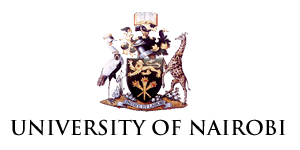Higher Education’s Role in Preventing Environmental Crime by Promoting SDG 16
Date |
Friday, 4 December 2020 |
Host |
|
Time (CET)
|
13:00 - 14:30 |
Language |
English |
SDG 16 focus on Peace, justice and strong institutions and this rule of law is critical. The magnitude of environmental crime is only understood based on available information and research institutions are important in playing this very critical role of generating data through research on various aspects of environmental crime such as illegal logging, trophy trafficking, charcoal trading. Who consumes this data? However, unless this information that is generated by higher institution is processed to a level that can be consumed by policy makers and citizens who are often not scientist, it remains a discussion at ivory tower. Such data analysis and sharing should be used to improve institution governance through stimulating policy discussion and change. This objective of preventing environmental crime could also be achieved through learning and training using module such as those generated by E4J and making them widely available to tutors across disciplines at university level. This might also be boosted by twinning, exchanging tutors to enable enrichment of delivery of content and sharing of experience, across discipline and university in North-South scenario. Are we using the right data from training? Incorporation of field experiential learning helps learners and trainers to conceptualize the magnitude of the problem confronting society and level of livelihood that push them to engage in these environmental crimes. What alternative would discourage this? Understanding community scenario helps to craft viable and useful interventions that would also these environmental crimes.
Specific focus
- SDG 16 and environment
- sharing research data on environmental issue
- processing data for easy consumption by citizens
- Learning and training cooperation e.g. E4J modules
- Sharing experience of north-south approaches
- Training - Experiential and interdisciplinary learning
- Improving institution governance through stimulating policy change
Panellists
Moderator
Isabel Toman
Programme Officer for Sustainable Development, International Association of Universities (IAU)
Isabel Toman is working as Programme Officer for Sustainable Development at the International Association of Universities (IAU), based in Paris at UNESCO. Higher Education and Research for Sustainable Development (HESD) forms one of the four strategic priorities of the Association. Amongst Isabel’s tasks at the IAU are the coordination of the IAU Global HESD Cluster, communication with Members and partners on HESD, content on the HESD Portal, as well as work on related events and publications. Before coming to the IAU in 2019 and taking up her current position in 2020, she gained international experience during work placements in the higher education sector in Mexico and Germany, and her studies (politics, international relations, languages) in Germany, Spain and the UK.
www.iau-aiu.net | www.iau-hesd.net | @IAU_HESD
Speakers
Thuita Thenya
PhD, Senior Lecturer, Wangari Maathai Institute of Peace and Environmental Studies, University of Nairobi, Kenya
Dr. T. Thenya is a Senior Lecturer at Wangari Maathai Institute of Peace and Environmental Studies, University of Nairobi, Kenya with over 20 years in natural resources management and governance. Previously, he worked as senior lecturer in the Department of Geography and Environmental Studies as Biogeographer. He is an expert in participatory natural resources management in East Africa region. Dr. Thenya is trained in conflict mediation and has a wealthy of experience in natural resources conflict management. He is a board member and deputy chair at Green Belt Movement (GBM), member UNESCO Man and Biosphere (MAB) national committee and a coordinator of SDG 16 cluster lead IAU. He serves as school board member and a youth mentor.
https://wmi.uonbi.ac.ke/staff/dr-thuita-p-thenya | https://www.greenbeltmovement.org/who-we-are/our-staff-and-board/staff-kenya
Jens Emborg
PhD, Associate Professor, University of Copenhagen, Faculty of Science, Denmark and the Wangari Maathai Institute of Peace and Environmental Studies, University of Nairobi, Kenya.
Jens Emborg carries Master of Mediation and Conflict Resolution (from the Faculty of Law, University of Copenhagen) has a PhD in Forest Ecology and is a partner in Danish Centre for Conflict Resolution. His early research focused on forest ecology, where he headed several larger national/international research programs. Later he turned towards Social Issues and Conflict in land-use and resource management and established the research/teaching field of Environmental Conflict Resolution at the University. Jens Emborg has worked in public policy making at a practical level, bridging the gaps between research, policy and practice.
Paballo Abel Chauke
Lecturer, Training Coordinator, Writer, Researcher, Podcaster and Expert in environmental crime, University of Cape Town and School of International Training
Paballo Chauke has an MSc in Biodiversity, Conservation and Management (BCM) from the School of Geography and Environment (SoGE) at the University of Oxford (Oriel College) in the United Kingdom. His MSc research was titled “Fighting the “Good” Fight: Green Violence and Anti-Poaching of Rhino in the Kruger National Park, South Africa”. Mr Chauke also has two degrees from the University of Cape Town, an undergraduate degree with a triple major in Sociology, Environmental Geographical Sciences and Xhosa Communication. He also holds an honours degree in Environmental Geographical Sciences from the same institution. He has a multi-trans and cross disciplinary background and has a vast experience in research, coordination, facilitation, teaching, translation, supervision, mentoring and volunteering. He has a myriad of overlapping interests and skills/experience ranging from climate change, (sexual) health, poverty eradication, land restitution, nature conservation and social justice just to name a few.
Bianca Kopp
Global Coordinator of the higher education component of the Education for Justice (E4J) initiative, UNODC
Bianca has been working for the United Nations since 2010, including for the UN Counter-Terrorism Implementation Task Force, the UN Democracy Fund, and for various sections in the United Nations Office on Drugs and Crime. Prior to this, she was working for the Austrian Ministry of Foreign Affairs and as a researcher and lecturer at the Department of Political Science of the University of Salzburg, Austria. As a survivor of the terrorist attack on the UN in Nigeria in 2011, she is a strong advocate for the role education has in countering radicalisation and in strengthening rule of law worldwide.
https://www.unodc.org/e4j/en/tertiary/index.html
 Back to Day 4
Back to Day 4
 To top
To top





